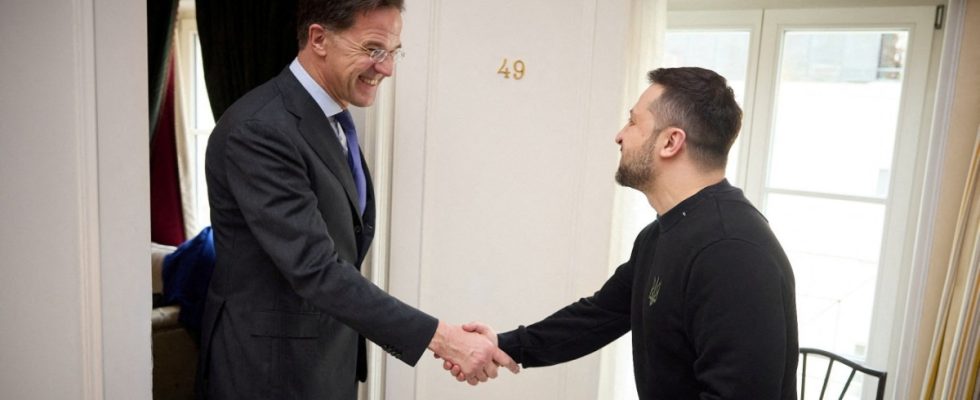Dutch Prime Minister Mark Rutte is set to lead NATO from autumn. After there had been increasing speculation in Brussels over the past few months about the personnel, the leading governments in the military alliance officially voted on Thursday to appoint the 57-year-old Dutchman as the new Secretary General of the alliance. “The Chancellor supports the nomination of Mark Rutte as the new Secretary General of NATO,” said Chancellor Olaf Scholz’s spokesman. A spokesman for American President Joe Biden made a similar statement. Statements of support also came from London and Paris.
The Secretary General of NATO is appointed unanimously by the member countries, but the leading nation, the USA, has a particularly great influence. In this respect, Rutte’s appointment is likely to be significantly more likely than that of Romanian President Klaus Johannis, whom the government in Bucharest apparently also wants to nominate. The alliance currently has 31 members, and the number is expected to rise to 32 next week if Hungary approves Sweden’s accession as expected.
Stoltenberg’s term of office was extended several times
NATO will be led until October by former Norwegian Prime Minister Jens Stoltenberg, who took over the post in 2014. His term of office was extended several times – first in 2022 because of the outbreak of war in Ukraine, then in 2023 because the NATO countries could not find a really suitable successor. However, Stoltenberg has made it clear that he wants to end his time at the top of the alliance. Most NATO countries now wanted to get his successor selected quickly – so that there is clarity and the NATO office does not become part of the large personnel carousel that will revolve in Europe in the second half of the year, when the top positions of the EU will be re-occupied.
Rutte fulfills most of the conditions that applied to the new NATO Secretary General. First: He is a European, who traditionally holds the political leadership position of the alliance, while the USA sends a general as military commander-in-chief. Secondly, Rutte is a head of government and therefore has the necessary political weight and foreign and security policy experience for the new post. Rutte has ruled the Netherlands since 2010. Last summer his coalition collapsed, he resigned and has since been in charge of government on an acting basis until a new government is formed in The Hague.
Third: Rutte is a proven transatlanticist and determined supporter of Ukraine. Considering its size, the Netherlands is one of the most important arms suppliers. Among other things, they lead the so-called F-16-Coalition, a group of European states that want to hand over fighter jets of this type to Kiev this year.
Others were considered by some NATO governments to be too aggressive in tone
At the same time, however, Rutte is not as open and rhetorically harsh an opponent of Russia as some other possible candidates from Eastern and Central Europe whose names have been circulating in Brussels in recent months. This particularly applies to the Estonian Prime Minister Kaja Kallas, who would have liked the office, but who some NATO governments considered to be too aggressive towards Moscow. The calm, calm Rutte is more capable of reaching a consensus in this regard.
However, Rutte clearly does not meet a criterion that NATO had unofficially set for itself: he is not a woman. The alliance’s heads of state and government would actually have liked to introduce a woman as Secretary General for the first time at their summit in Washington in July, where they want to celebrate the 75th anniversary of the founding of NATO.
Rutte will take office in the fall in a political environment that is only inadequately described by the adjective “challenging.” It is currently difficult to predict what the military situation in Ukraine will be like. But hardly any observer is particularly optimistic that the Ukrainian army will do more than hold the front against the Russians.
In addition, Donald Trump could win the presidential election in the USA at the beginning of November. The Republican, whom Stoltenberg had to entice and contain for four years so that he would not terminate US membership in NATO, recently shocked the alliance with the threat of not wanting to protect those European states that spend too little on their defense. It looks like Rutte will not have a quiet start to his new office.

